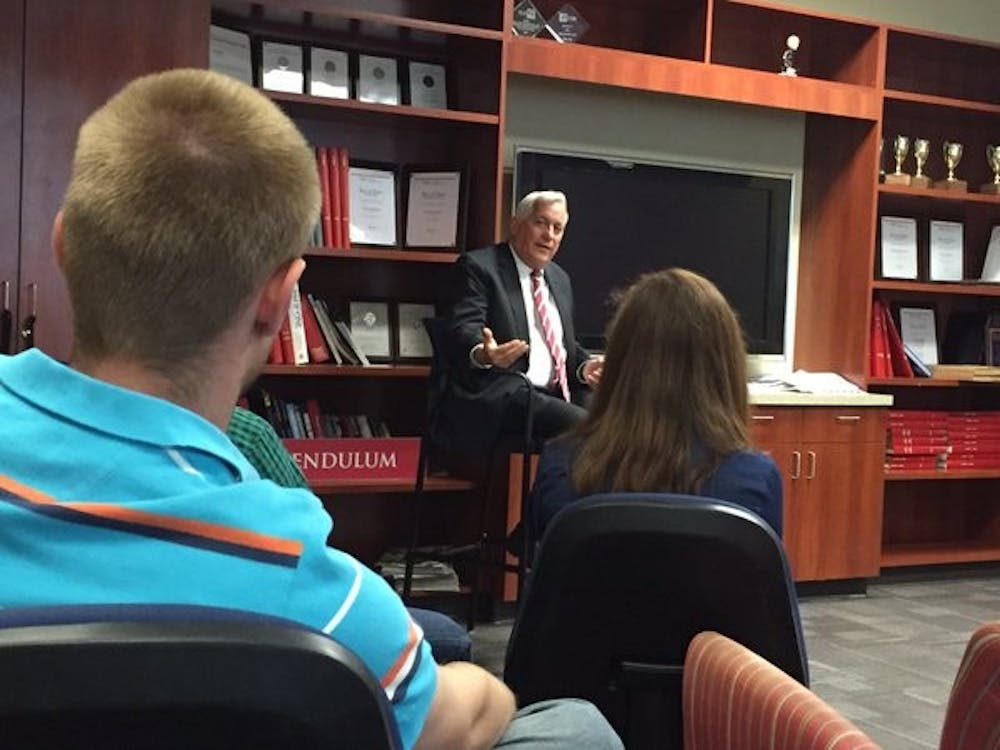Walter Isaacson, CEO of the Aspen Institute and former CEO of CNN and managing editor of Time Magazine, was at Elon University on Thursday for Spring Convocation. Before his speech, he made time for a visit to The Pendulum's office.
I can't recall a past Convocation speaker taking time to visit with student media, and there have been a number of journalists to speak at Elon in recent memory. Pulitzer Prize winners Nicholas Kristof and Sheryl WuDunn came for Fall Convocation in 2014, and nationally-syndicated columnist Leonard Pitts Jr. delivered the Baird Pulitzer Prize Lecture this past fall.
All that said, it's pretty neat that he took time to visit with us.
He shared advice for moving forward in the journalism industry, one he acknowledged is changing by the day and is much different from when he led Time in the late 1990s.
When asked about the future of newspapers, he said paper will always exist as a medium, but paper isn't necessarily the best medium for newspapers.
He was blunt, too, when asked about converged news organizations and his time at CNN. Isaacson was pushed to take over as CNN's CEO in 2001, something he felt uncomfortable with since he didn't know the medium well, and acknowledged he didn't do a great job.
Next year, The Pendulum is merging with Elon Local News to create a converged news organization. Isaacson said not many of those have worked in the past, noting that the New Orleans Times-Picayune — where he used to work — tried to converge with a local TV station, and it didn't quite work out. He also spoke about issues with producing more video at Time.
He advised us on what skills to hone in on as we prepare for real-world jobs, saying that knowing how to coherently write a story is still the most valuable.
Early in his Convocation speech, he mentioned the importance of being part of something bigger than yourself. I thought that was cool, because he talked about that with us at The Pendulum.
It was a fantastic experience to chat with such an accomplished industry figure in a small setting. He helped reinforce that professionals are excited to see what's to come with in journalism's future, and it's we, the people involved with student media, who are helping create that future.


